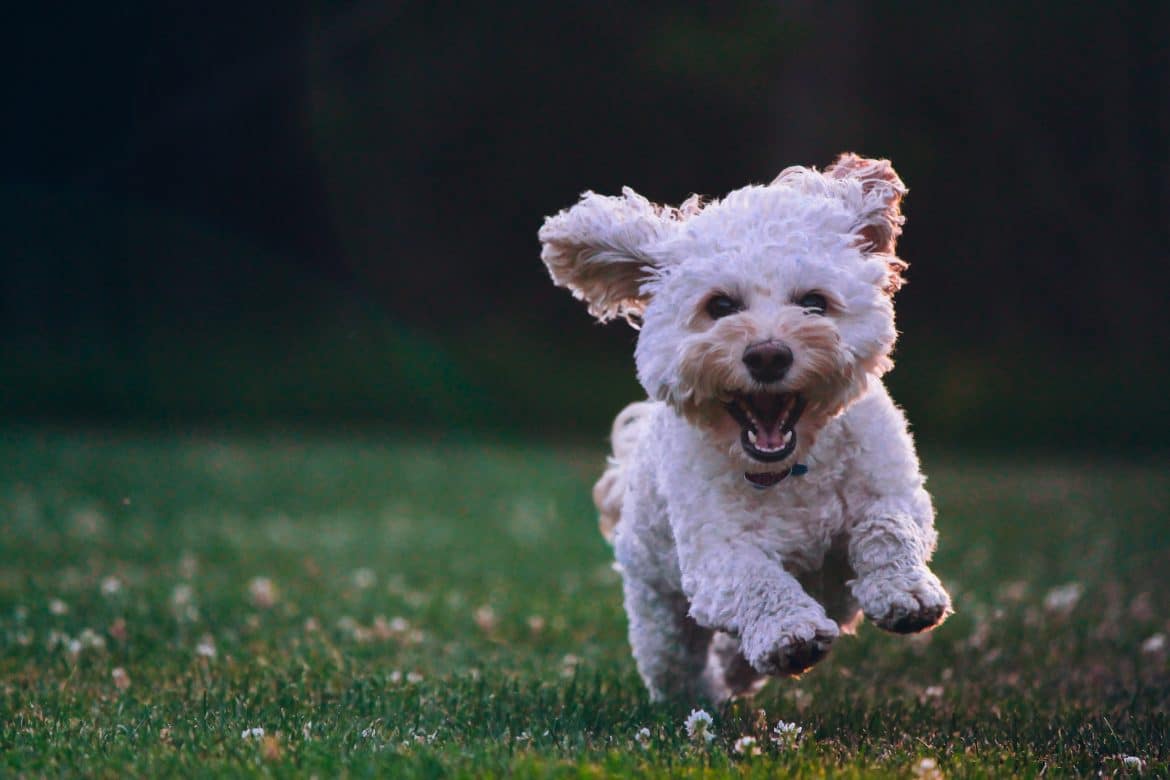You’ve just brought home a new adorable bundle of fur – a puppy that is eager to explore the world. As a responsible pet owner, it’s crucial to ensure your furry friend receives the proper socialization they need to grow into well-behaved and confident dogs. In this article, we’ll share some valuable tips for effectively socializing puppies, helping them build positive behavior and pave the way for a happy and harmonious future.
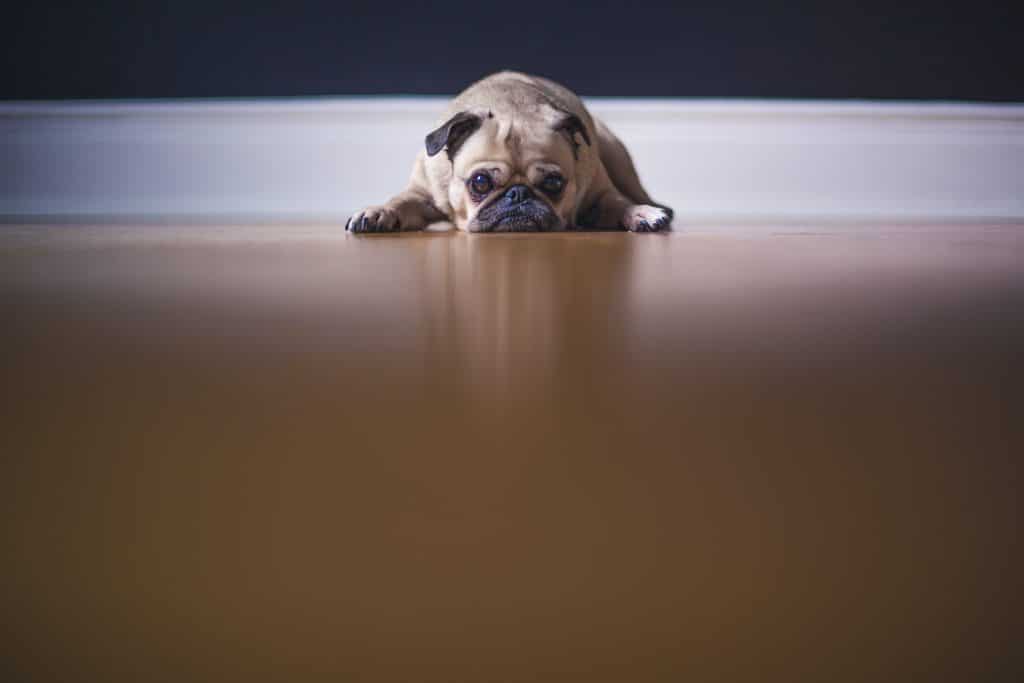
This image is property of images.unsplash.com.
Understanding the Importance of Socialization
Socialization plays a crucial role in the development of puppies. It is the process of exposing them to various experiences, environments, people, and animals to help them become well-rounded and adaptable individuals. Early socialization is particularly important as it sets the foundation for a happy and confident dog.
Early Socialization is Key
The first few months of a puppy’s life are a critical period for socialization. During this time, puppies are more receptive to new experiences, and positive interactions can shape their behavior in the long run. It is recommended to start socializing puppies as early as possible, ideally between the ages of 3 to 14 weeks.
The Benefits of Proper Socialization
Proper socialization has numerous benefits for puppies. It helps them become more adaptable and confident in different situations. Socialized puppies are more likely to develop good behavior and manners, making them easier to handle in various environments. They are also less likely to develop fear or aggression towards unfamiliar people, animals, or objects.
The Risks of Inadequate Socialization
On the other hand, inadequate socialization can lead to behavioral problems, such as fearfulness, anxiety, and aggression. Dogs that have not been properly socialized may struggle with new experiences, resulting in stress and difficulty adjusting to different environments. It is important to proactively socialize puppies to minimize the risks of behavioral issues later in life.
Preparing for Socialization
Before starting the socialization process, it is essential to make the necessary preparations to ensure a smooth and positive experience for your puppy.
Gather Necessary Supplies
To facilitate socialization, gather supplies such as treats, toys, and a secure leash and harness. Treats can be used as rewards during training and positive reinforcement, while toys can help keep your puppy engaged and stimulated.
Create a Safe and Controlled Environment
Set up a safe and controlled environment within your home or yard where you can introduce your puppy to various stimuli. Remove any potential hazards and provide a comfortable space for your puppy to explore and interact with different objects.
Set Realistic Expectations
It’s important to set realistic expectations for your puppy’s socialization journey. Not all puppies will progress at the same pace, and some may require more time to feel comfortable in certain situations. Patience and understanding are key to ensuring your puppy’s socialization process is a positive experience.
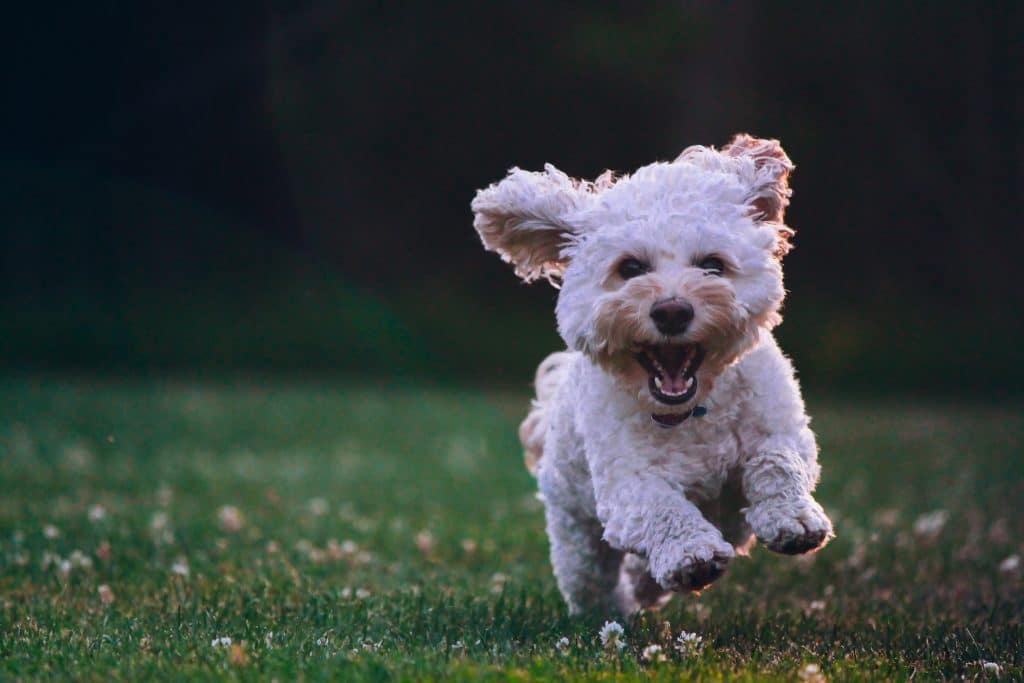
This image is property of images.unsplash.com.
Getting Started with Socialization
Once you’ve prepared, it’s time to start introducing your puppy to different experiences, people, and animals.
Introduce Your Puppy to Different Environments
Begin by gradually exposing your puppy to different environments. Start with quieter areas and gradually increase the complexity and busyness. This can include walks in your neighborhood, visits to parks, cafes, or pet-friendly stores. Allow your puppy to explore and observe their surroundings while providing reassurance and encouragement.
Expose Your Puppy to Various People
It is essential to expose your puppy to a variety of people, including children, adults, and individuals of different ethnicities, ages, and appearances. Encourage gentle interactions and teach your puppy how to approach and interact with people appropriately. This will help them become comfortable and well-socialized around different individuals.
Allow Interactions with Other Animals
Socializing your puppy with other animals is vital for their overall development. Arrange controlled interactions with well-mannered dogs to help your puppy learn proper social cues and behavior. Supervise these interactions to ensure they remain positive and safe.
Encourage Positive Experiences with Children
Introduce your puppy to children in a controlled and supervised setting. Teach children how to interact with puppies gently and provide positive reinforcement for your puppy when they display calm and appropriate behavior around children. This will help your puppy develop positive associations with children, making them more comfortable and friendly in their presence.
Positive Reinforcement Training
Positive reinforcement is a highly effective training method that can be utilized during the socialization process to encourage desired behaviors and build a strong bond with your puppy.
Use Rewards and Treats
Reward your puppy with treats and praise when they display desired behaviors during socialization. Treats serve as positive reinforcement and help your puppy associate new experiences with positive outcomes. This will motivate them to willingly engage in socialization activities.
Employ Clicker Training
Clicker training is a form of positive reinforcement that uses a distinct clicking sound to mark desired behaviors, followed by a treat or reward. By associating the clicker sound with positive experiences, you can effectively communicate with your puppy and reinforce their good behavior during socialization.
Teach Basic Obedience Commands
Teaching your puppy basic obedience commands, such as sit, stay, and come, is an essential part of socialization. These commands create structure and allow you to have better control over your puppy during social interactions. Use positive reinforcement techniques to reward your puppy when they successfully obey these commands.
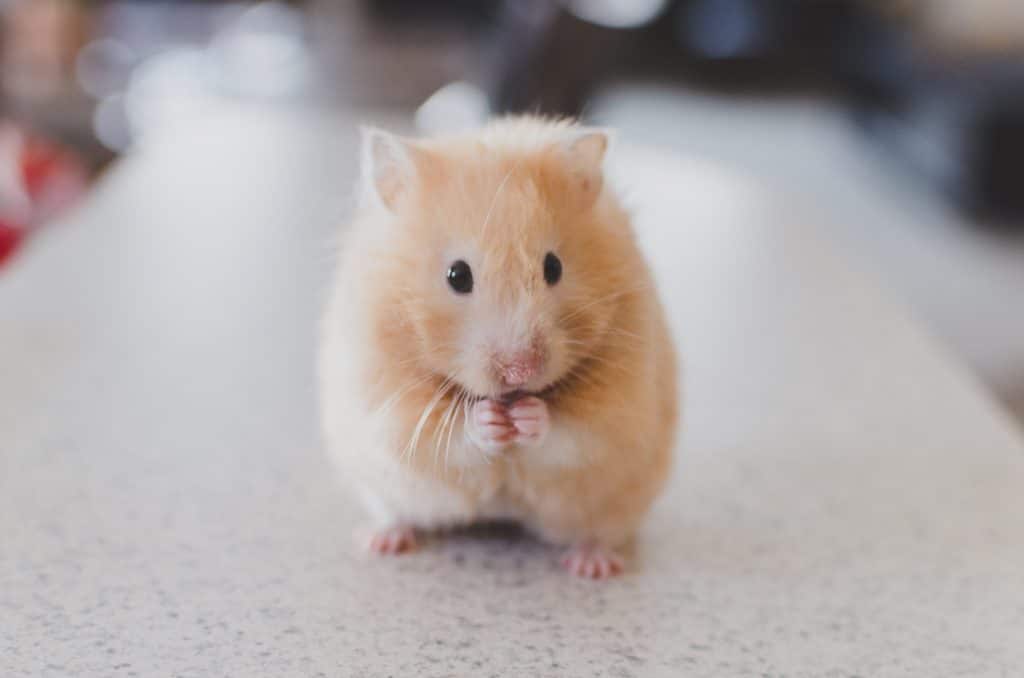
This image is property of images.unsplash.com.
Gradual Exposure and Desensitization
Gradual exposure and desensitization are techniques used to help puppies become comfortable with various stimuli and reduce fear or anxiety.
Expose Your Puppy Gradually to Stimuli
When introducing new stimuli, such as loud noises, unfamiliar objects, or unusual surfaces, do so gradually. Start at a distance or with low intensity and gradually increase exposure as your puppy becomes more comfortable. This gradual exposure helps prevent overwhelming or negative associations.
Gradually Increase the Intensity of Socialization
As your puppy becomes more confident, gradually increase the intensity of socialization experiences. This can include exposing them to busier environments, larger groups of people, or more challenging situations. By gradually building up their experiences, your puppy will develop resilience and adaptability.
Desensitize Your Puppy to Common Fears
Identify any specific fears or anxieties your puppy may have, such as thunderstorms or vacuum cleaners, and work on desensitizing them. Gradually expose your puppy to these stimuli at a low, manageable level, rewarding them for calm behavior. Over time, your puppy will learn to associate these once-frightening stimuli with positive experiences, reducing their fear.
Supervised Playdates and Socialization Classes
Arranging playdates with well-mannered dogs and attending puppy socialization classes are excellent ways to enhance your puppy’s socialization skills.
Arrange Playdates with Well-Mannered Dogs
Organize playdates with other dogs that have a calm and friendly temperament. These interactions allow your puppy to practice appropriate social behaviors and learn from other dogs. Supervise these playdates closely to ensure they remain positive and prevent any potential conflicts.
Attend Puppy Socialization Classes
Enrolling your puppy in professional puppy socialization classes provides structured and supervised environments for social interactions. These classes are designed to expose puppies to various stimuli and facilitate positive interactions with both humans and dogs. Trained instructors can guide you on proper handling techniques and offer valuable advice on any behavioral concerns.
Ensure Adequate Supervision During Social Interactions
It is crucial to supervise all social interactions closely, whether it’s during playdates or in socialization classes. Pay attention to your puppy’s body language and behavior, intervening if necessary. Supervision ensures the safety and well-being of all involved and helps prevent negative experiences that could hinder their social development.
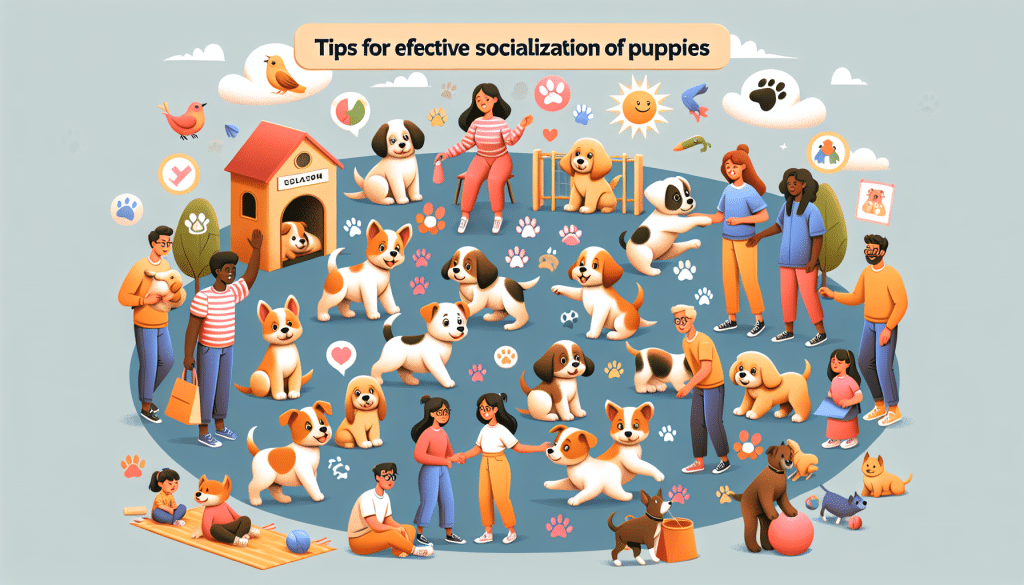
Avoiding Overwhelming Situations
It’s important to be aware of your puppy’s limits and avoid overwhelming situations that could cause stress or anxiety.
Recognize Signs of Stress and Overwhelm
Learn to recognize signs of stress or overwhelm in your puppy, such as trembling, panting excessively, or hiding. If your puppy is showing signs of discomfort, it’s essential to remove them from the situation and provide a calm and quiet space to decompress.
Give Your Puppy Space and Breaks
If your puppy becomes overwhelmed during socialization, give them space and provide regular breaks. Allow them time to rest, relax, and process their experiences before continuing with socialization activities. This ensures that their socialization experiences remain positive and enjoyable.
Adjust Socialization Pace According to Individual Needs
Every puppy is unique, and some may require a slower or faster pace of socialization. Pay attention to your puppy’s individual needs and adjust the socialization process accordingly. Some puppies may naturally be more social and confident, while others may be more sensitive or cautious. Adapting to their needs ensures a positive and effective socialization experience.
Promoting Positive Experiences
In addition to exposing your puppy to different experiences and interactions, it’s important to promote positive experiences through sensory stimulation and enrichment.
Expose Your Puppy to Different Sounds
Introduce your puppy to various sounds, such as vacuum cleaners, doorbells, or car horns, in a controlled and positive manner. Start with lower volumes and gradually increase the intensity as your puppy becomes more comfortable. This exposure helps to prevent fear or anxiety related to loud noises.
Introduce Novel Smells and Textures
Expose your puppy to different smells and textures to stimulate their senses and broaden their experiences. This can include introducing them to novel scents, such as spices or perfumes, or providing various surfaces for them to walk on, such as grass, carpet, or hardwood floors.
Provide Enrichment Toys and Activities
Enrichment toys and activities, such as puzzle toys or interactive feeders, can provide mental stimulation and promote positive experiences. These toys engage your puppy’s problem-solving skills and keep them entertained while also reinforcing positive behaviors.
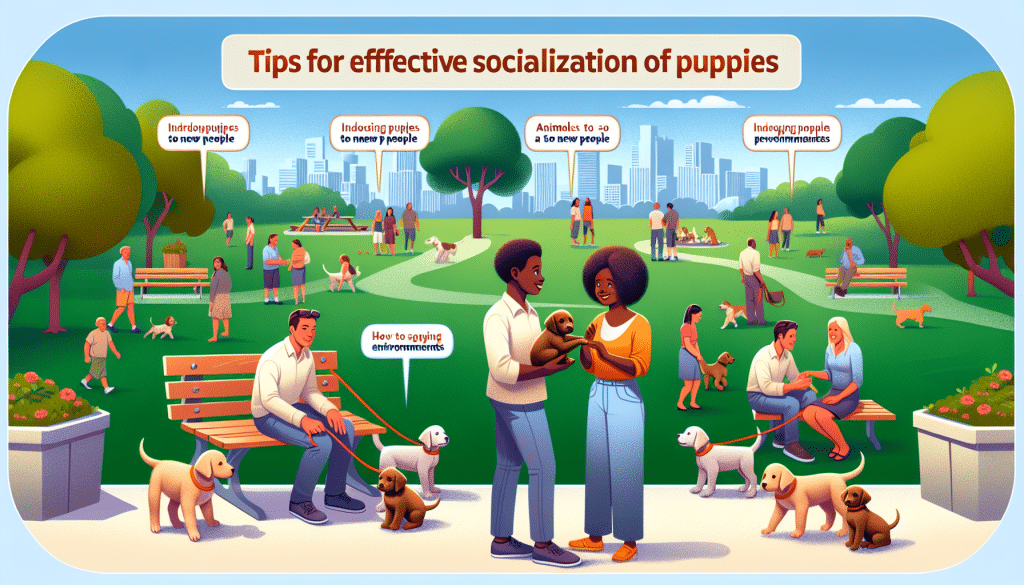
Consistency and Continuity
Consistency and continuity are key when it comes to socialization. Make socialization a daily priority and incorporate it into your puppy’s routine.
Make Socialization a Daily Priority
Allocate dedicated time each day for socialization activities. Even short sessions can have a significant impact on your puppy’s development. Consistency ensures that socialization becomes a natural and ongoing part of your puppy’s life.
Maintain a Consistent Routine
Having a consistent routine helps your puppy feel secure and sets expectations for their daily activities. Incorporate socialization into their routine by designating specific times for walks, playdates, or training sessions. Consistency reinforces the importance of socialization and provides structure for your puppy.
Continue Socialization Throughout Adulthood
Socialization is not a one-time event but an ongoing process throughout your dog’s life. While the critical period for socialization is during puppyhood, continued exposure to various experiences and interactions is necessary to maintain their social skills. Make an effort to expose your adult dog to new environments, people, and animals to ensure they remain well-socialized.
Seeking Professional Help
If you encounter any behavioral concerns or challenges during the socialization process, don’t hesitate to seek professional help.
Consult with a Professional Trainer or Behaviorist
Professional trainers or behaviorists can provide valuable guidance and support during the socialization process. They can assess your puppy’s behavior, address any specific challenges, and provide customized training plans to help overcome behavioral issues.
Address Any Behavioral Concerns Early
If you notice any concerning behaviors, such as excessive fear or aggression, it is crucial to address them early. Timely intervention can prevent the escalation of behavioral problems and increase the chances of successful rehabilitation.
Get Advice on Specific Socialization Challenges
Professional trainers or behaviorists can also provide specific advice on socialization challenges you may encounter, such as fear of strangers, separation anxiety, or resource guarding. Their expertise can help you navigate these challenges and ensure your puppy’s socialization experience is as positive and effective as possible.
In conclusion, socialization is an integral part of raising a well-adjusted and confident dog. By following these tips and guidelines, you can provide your puppy with a solid foundation for healthy social interactions and positive behavior throughout their life. Remember to be patient, consistent, and attentive to your puppy’s needs, and seek professional help if necessary. Happy socializing!

